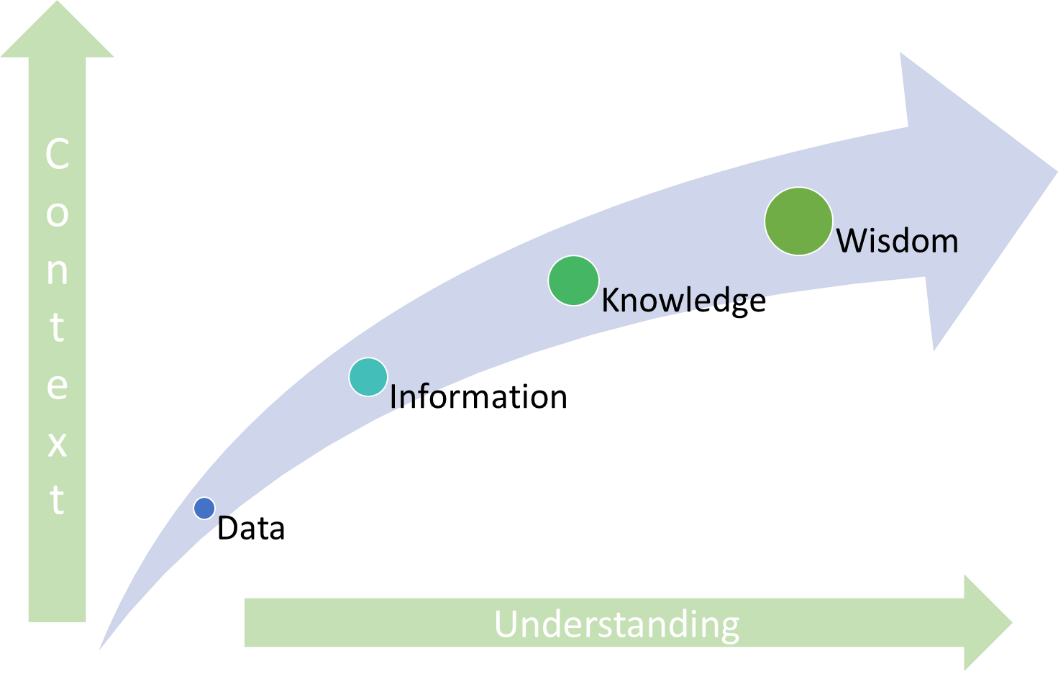Information is the key driver of growth in every business. Every techie is aware of the definition of information, yet the significance of the concept is forgotten far long. Businesses are busy grooming the core business activities and trying to expand their core capabilities. There’s hardly anyone who is thinking about the drivers of growth assuming the supporting functions as non-productive.
Though the companies have now started identifying the intrinsic meaning of the word, yet few are able to crystallize upon it. The core of the word information lies in the timely availability of the right data at the right place. Gradually, the corporate world has started looking towards the catalysts that can multiply their performances and enable them to take a leap ahead.
The path to wisdom was well identified long enough but it took ages for the organizations to turn it to reality. Even today organizations are ignorant enough to forget the importance of attaining wisdom. The path started with data leading to information with a timely availability of it and further transforming the information into knowledge by understanding the patterns of the information requirement and its availability.

Knowledge and understanding of the principles of knowledge leads to wisdom…
Organizations have tons of data in silos, but this is not worth a penny unless used at the right time and in the right direction.
Here comes the criticality of transforming that data and information into knowledge and managing that knowledge effectively to attain wisdom; therefore a need to implement Knowledge Management in the organization.
Researches have shown that the organizations that have focused on managing their knowledge, and have implemented it to some extent, have grown exponentially.
Today, it is vital for the organizations to establish their support functions in a robust and efficient manner as they also play an important role in improving the core business activity. For the organizations that are entirely based on knowledge, it is mandatory to store their knowledge in such a manner that it could be shared well amongst the requiring functions.
Knowledge has become the backbone of some of the core activities and managing knowledge is equally important. There must be a proper framework wherein knowledge sharing can be done and the organization can be groomed holistically. This has urged a need to the concept of Knowledge Management.
As Mary Lisbeth D’Amico has rightly quoted, "Knowledge management is something many companies are sure they need, if only they knew what it was”. It seems the time has come now when the organizations have started to understand the importance of knowledge management.
The power of knowledge management lies in collating the knowledge rightly and making it available in the fastest manner. Knowledge Management is not a tool but a process that can catalyze the productivity of the core business functions.

